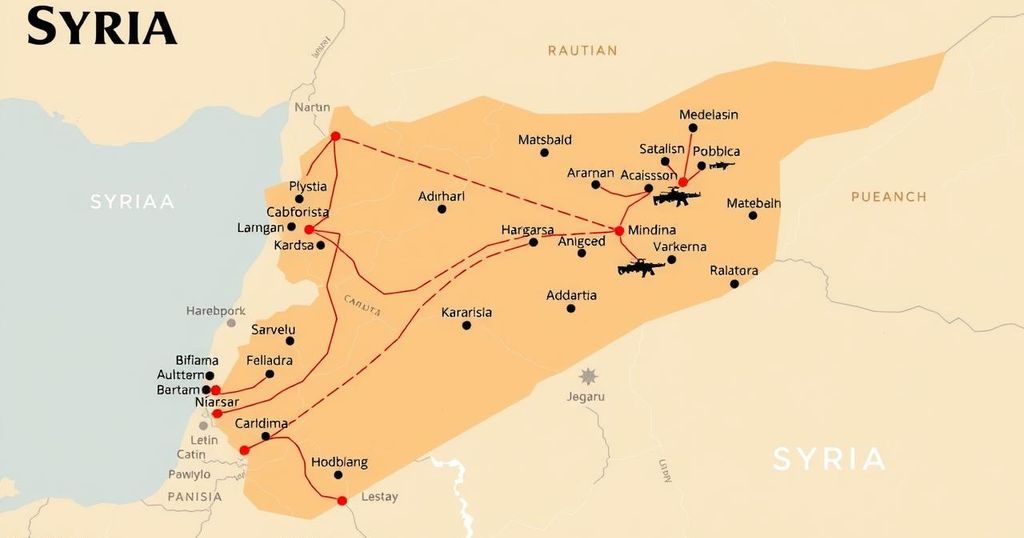Admiral Cooper Calls for U.S. Support of New Syrian Leadership

- Admiral Brad Cooper emphasizes the need to work with Syria’s Ahmed al Sharaa.
- The U.S. has shifted its policy to support Syria’s new leadership.
- Security in Syria is directly tied to U.S. national security goals.
- Cooper believes that diplomacy must accompany military strategies in Syria.
- The presence of U.S. troops in Syria remains critical despite recent reductions.
Cooper Advocates for Cooperation with Syrian Leadership
U.S. Navy Vice Admiral Brad Cooper has made headlines with his recent statement regarding the United States’ relationship with Syria’s new leadership. As the nominee to lead U.S. Central Command (CENTCOM) pending Senate confirmation, Cooper expressed a strong belief that cooperating with Syrian leader Ahmed al Sharaa and his administration is vital for regional stability. He emphasized during his testimony before the Senate Armed Services Committee that security in Syria directly translates to national security for the United States, particularly in the context of countering Daesh.
Shift in US Policy and Support for Syria
The remarks by Vice Admiral Cooper come amid a notable shift in U.S. policy towards Syria, especially following President Trump’s decision to lift some sanctions against the country last month. This decision appears to serve as a fresh start not only for U.S.-Syria relations but also for addressing the ongoing threat from Daesh. Cooper remarked that having the current government in place is crucial and expressed optimism for the future, stating, “I’m optimistic for the future… stability in Syria hinges upon the current leader [Ahmed al Sharaa].”
Balancing Troop Presence with Diplomacy
Moreover, Admiral Cooper reiterated the importance of U.S. military presence in Syria, which has been reduced from roughly 2,000 troops to fewer than 1,000 in recent months. While acknowledging this reduction, he cautioned against cutting troop numbers too swiftly without a full grasp of the evolving situation on the ground. As Daesh thrives amid chaos, Cooper maintains that the Syrian government’s capacity to help combat this terror threat, in collaboration with U.S. forces, is key to achieving a safer and more stable regional environment. His overarching message underscores a pressing need for a balanced diplomatic and military strategy.
In conclusion, Vice Admiral Brad Cooper’s statements highlight a significant turning point in U.S. policy towards Syria under new leadership. His emphasis on cooperation with Ahmed al Sharaa’s government and the integration of military efforts alongside diplomatic strategies stresses the importance of stability in the region. As the U.S. adjusts its presence and policies, a careful approach will be crucial in achieving long-term security not only for Syria but for the United States as well.








